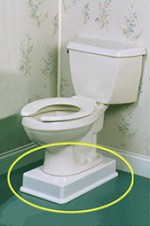As a loved one continues to struggle with the progression of Alzheimer’s disease, family members often grapple with the most effective ways to communicate with them.
The key thing to remember is that your loved one is never being difficult because they want to be difficult. They are struggling with a very tough disease, and they are doing the best they can.
That said, dealing with an Alzheimer’s patient can be extremely taxing for the caregiver. After all, when you have always dealt with your loved one in a certain way, and suddenly their personality and behavior changes, that is hard.
According to Renee Chase, community outreach coordinator for the Alzheimer’s Association of Greater Kentucky and Southern Indiana, as the disease gets worse, certain sectors of the brain are damaged more than others. The area of the brain that handles communication often is affected, which makes it harder for the loved one to express themselves.
Continue to communicate as best you can with your loved one to facilitate the caregiving process.
A person with the disease often has trouble finding the right word, or they may keep using the same word over and over. They might come up with nonsensical new words or even use swear words they never used before. They also may revert to their native tongue, or speak less and use gestures instead. They are trying to use the tools they have left, but the options dwindle with time.
Caregivers should help their loved one use the language abilities they still have. It is important to not criticize or correct, and arguing with them is never going to solve anything. But the closer you are to that person emotionally, the more frustrating this can get.
Chase notes that one reason you should stay calm when dealing with your loved one is that even though she may not be able to speak, they still are able to understand body language. And they will respond in a negative manner to a loud voice. The caregiver needs to learn how to read the body language of the loved one if she can no longer speak, so you can determine what is frustrating her.
Although the situation isn’t easy, it is not entirely negative, Chase believes. She notes that your loved one still has that spark of humanity and it’s vital to learn how to tune into that.
One way often is with music. If you play favorite old tunes for the patient, that often can really relax her and put her in a better mood.
And, you also may find that as Alzheimer’s patients decline, they may express their love for you more openly than they ever did.
Toileting Aids for the Alzheimer’s Patient
As you work with your loved one, you will find that many of our products will ease the process of caring for her. These toilet-related products will make the bathroom routine go more smoothly:
The Easy Toilet Riser – boosts the height of the toilet without the hassles of a raised toilet seat
SUNzyme Natural Odor Eliminator – an unscented odor eliminating spray that has several natural oils.
Use these products and our other toilet-related offerings to smooth the bathroom process for your loved one.



